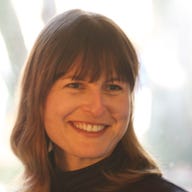GE CEO Jeff Immelt: U.S. energy policy lags behind China, world

 WASHINGTON -- GE chairman and CEO Jeff Immelt talked to New York Times columnist and author Tom Friedman yesterday at the GridWise Global Forum in Washington, D.C., sharing his views on the smart grid, the controversy surrounding it and how far the U.S. lags behind the rest of the world when it comes to energy.
WASHINGTON -- GE chairman and CEO Jeff Immelt talked to New York Times columnist and author Tom Friedman yesterday at the GridWise Global Forum in Washington, D.C., sharing his views on the smart grid, the controversy surrounding it and how far the U.S. lags behind the rest of the world when it comes to energy.
“I love this country,” Immelt said, “but the rest of the word is moving so fast. Energy is one of those places I worry about the most, where the rest of the world is moving 10 times faster than we are.”
Immelt said we only have two big jobs as a country today: our military engagements (on which he said he is not qualified to comment) and the fact that the U.S. is not moving quickly enough.
“That’s liberating,” he said. “It’s so simple. There’s not five things to work on; there’s just two.”
He said people have to understand what the U.S. is doing and what it’s not doing. It is not, for example, building coal plants or leading the way in electric vehicles, he said. And we’re not building full-scale nuclear power plants or rebuilding the nuclear industry, either.
“I wish we were,” he said, a point he reiterated several times in the conversation. “We need a nuclear power industry.”
The industry’s most prominent output today? The press release, he said.
When he looks at what is going on in China -- which he said remains "the most important new market in the world" -- Immelt said the global market, technical innovation, supply chain and public policy are all “green, green, green, green.” In the U.S., "public policy is red," he said.
 “We actually have to have an energy policy,” Immelt stressed. “It’s just stupid what we have today.”
“We actually have to have an energy policy,” Immelt stressed. “It’s just stupid what we have today.”
He said the clean energy discussion has gotten tied up in a dialogue about climate change, which has been a distraction from the ultimate goal.
“But that doesn’t mean we should give up,” he said. “For me, business just goes on. Regardless of where the politics go, we can't lose the momentum.”
Friedman asked Immelt to list three changes in public policy that would help scale the industry.
Immelt said:
- Creating a price for carbon;
- Providing appropriate funding for innovation; and
- Recognizing that if you do these things, it creates jobs rather than eliminates them.
"Where we have to get better on the government funding is -- pick fewer things, do them more deeply and have a global view," he said. “Say, 'We're going to be the best in the world at this.' "
Immelt said in order for the smart grid to become a reality, it must be bigger and smarter.
“And you’re just not going to do this 50 states at a time,” he said. “The whole energy, regulatory system is a relic of 1860 or something. It has fundamentally no basis in the modern world."
Furthermore, he said that the consumer doesn’t yet understand the smart grid—or know how it will help the, which makes it controversial. He compared it to his experience in the early 1980s, when he was selling plastic to the automotive industry.
“I remember the IT guy coming in and installing Microsoft Outlook,” he said. “I didn’t ask for Microsoft Outlook. So my mom and dad aren’t out there saying, ‘Give me smart grid.’ These are average people. If they have it, they want to save 10 percent on the utility bill.”
He said while there are a few experiments, in places like Boulder, Colo., and Miami, “in a national smart grid, we’ve done nothing.”
So how have research and innovation changed at GE since Immelt joined the company in 1982? Immelt said the company is more global, with more PhD-holding employees around he world; it spends a lot on manufacturing and services as well as products; it aims to occupy every corner of an industry—from low-end to high-end; and it wants to be an open source company.
On the last point, he said he would like for “venture capitalists and small businesspeople to feel safe coming through our doors and working with us. The smart grid challenge is a good case of that,” he said. “We want to occupy the space. We want to win in smart grid.”
This post was originally published on Smartplanet.com